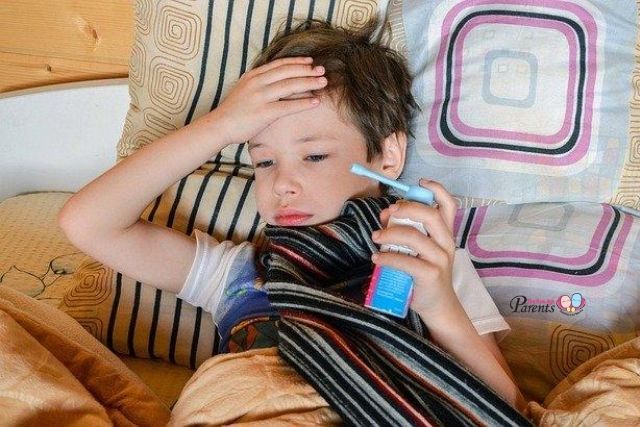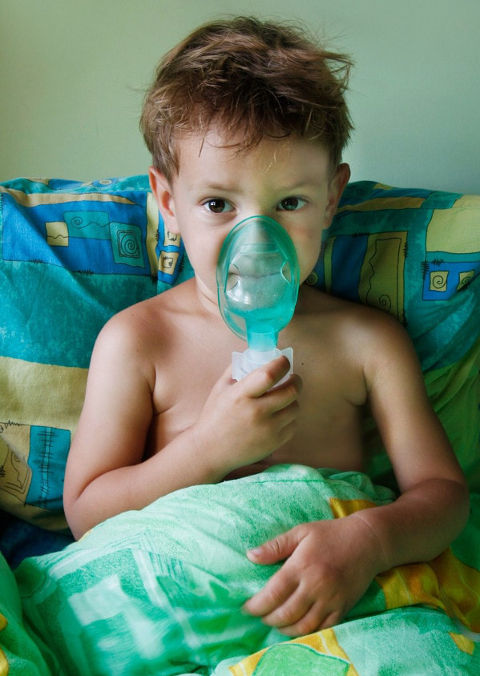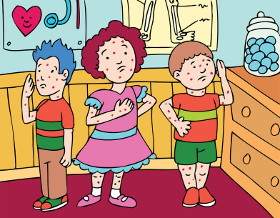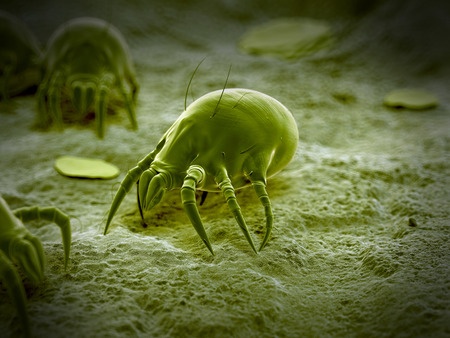An estimated 334 million people worldwide¹ suffer from asthma, and that number will grow by more than 100 million by 2025². 14% of the world’s children under the age of 18 experience asthma symptoms³.
However, an asthma diagnosis does not mean that children need to limit their day-to-day activities and miss out on anything. Having an asthma management plan and appropriate medication will ensure that your child can still breathe and live easy.

Here’s everything you need to know about asthma and allergies, and how to ensure your child’s asthma is well-managed for a better quality of life, with expert advice from Dr. Chiang Wen Chin, President of Asthma and Allergy Association Singapore.
5 Questions with Dr. Chiang Wen Chin, President of Asthma and Allergy Association Singapore
Q: What happens in an asthma attack and why is this life-threatening?
A: Asthma is a condition whereby the airways are swollen with the narrowing and inflammation of the airways in the lungs, which may restrict airflow and result in poor oxygen delivery to vital parts of the body. Asthma triggers can be allergens such as house dust mites, pet dander, mold spores, pollen, microscopic 2.5 air particles, bacteria, viruses and changes in temperature and humidity.
During an asthma attack, sufferers are unable to breathe and symptoms include wheezing, chest tightness and shortness of breath. If not treated in time, it can be life-threatening and possibly, fatal.

Q: Those suffering from asthma require daily medication. Are there any long-term side effects? Will asthma ever go away?
A: Asthma is a condition that has different outcomes in life, and that depends on appropriate management and medication plans to manage the symptoms when they occur.
Asthma may not go away. In birth cohort studies, we often see that asthma may start in early childhood and a great proportion of these children have asthma that is outgrown or ‘goes away’ in childhood and teenage years. However, there will be a subset of children or adults whose asthma starts at a certain age and suffer from a relapsing waxing and waning episode of asthma exacerbation in life. Hence, it is crucial to ensure a proper asthma management plan to relieve symptoms and reduce the risk of asthma attacks through life.
Q: Once diagnosed with asthma, a child has to avoid vigorous activities to avoid an inducing an attack – is this true?
A: This is not true. Most children with childhood asthma can continue with their daily activities, as long as their asthmatic condition is well-managed.
The only exception is when they are having an acute asthma exacerbation. In that case, care must be taken to avoid any asthmatic triggers: ensuring clean and healthy indoor air, adhering to their asthma management plan as advised by a healthcare professional, and avoiding competitive sports until they recover.
Q: What is the link between allergies and asthma?
A: Allergens can trigger asthma. One form of asthma is allergic asthma, where allergens cause an allergic reaction because the immune system thinks they are harmful and it responds by releasing a substance called immunoglobulin E (or IgE).
Too much IgE can trigger inflammation (swelling) of the airways in the lungs. This can make it harder to breathe and hence trigger an asthma attack.
Q: How can living environments be optimized at home to help asthma sufferers better manage the condition?
A: Improving indoor air quality has the potential to reduce many irritants that can trigger asthma symptoms. These include allergens, pollution particles and humidity.
While these triggers may seem beyond our control, there are measures that can be taken to manage the home environment.
One way to create a healthy environment is with an air purifier. This ensures proper air flow, filtration of potential asthmatic triggers, and control of humidity to improve indoor air quality so asthma sufferers can breathe and live easy.
1, 3 globalasthmareport.org, 2014
2 aaaai.org/asthma-statistics
* * * * *
If you find this article useful, do click Like and Share at the bottom of the post, thank you.
Want to be heard 👂 and seen 👀 by over 100,000 parents in Singapore? We can help! Leave your contact here and we’ll be in touch.





















































